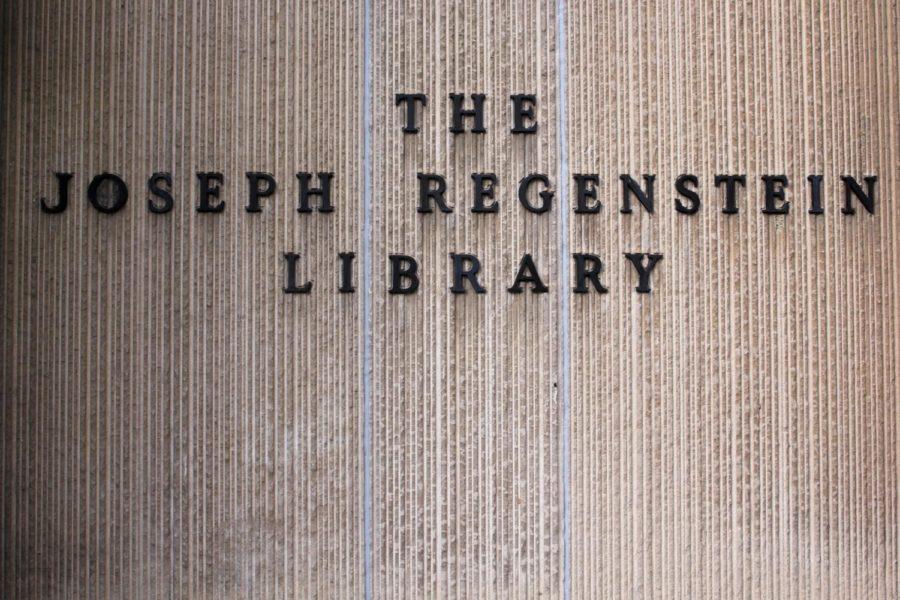The University of Chicago must recognize student library workers’ collective bargaining efforts, the Seventh Circuit Court of Appeals said in a decision last week, which denied the University’s assertion that student workers are “temporary workers” and should therefore be excluded from collective bargaining rights.
The case was taken to the Seventh Circuit by the University to appeal National Labor Relations Board’s (NLRB’s) decision to deny the University a hearing. The University planned to use a hearing to argue that student library workers do not possess collective bargaining rights. The NLRB oversees collective bargaining disputes; however, disputes over the NLRB’s oversight may be taken to federal courts for judicial review.
Student library workers voted to unionize under the Student Library Employees Union (SLEU) in June of 2017, but the University challenged their vote, setting into motion an 18-month legal battle before the NLRB affirmed student workers’ right to unionize. The University disagrees that student workers possess collective bargaining rights and is asking the NLRB to consider students’ status, citing student library workers as “temporary” in their evidence brought forward to the Board.
The University attempted to initiate a hearing on the status of student workers, but the NLRB refused a hearing after they determined that the University did not present sufficient evidence to substantively defend their position in a hearing on the status of student workers. The University chose to appeal the NLRB’s determination, pushing the case to judicial review in the Seventh Circuit Court of Appeals.
The University’s decision to take their case under judicial review came after the NLRB sought to take legal action against the University for failing to follow current law, which recognizes student workers as possessing collective bargaining rights. In May 2017, the Board initiated legal action after the University refused to recognize student library employees represented by the International Brotherhood of Teamsters union Local No. 743 (Local 743).
In a peculiar legal argument, the University presented the NLRB with evidence that they believed would overturn current Board law as established in a 2016 case with Columbia University, which ruled that “finite tenure alone cannot be a basis on which to deny bargaining rights” and allowed short-term student employees to form a collective-bargaining unit.
However, the University’s evidence only repeated a case previously ruled upon, the Board said. The NLRB denied the University’s request for a hearing, due to a lack of new evidence to consider countering an existing law.
The Seventh Circuit’s review only considered the NLRB’s decision to deny the University a hearing, and did not examine whether to appeal the current Board law that came from the Columbia University ruling and grants student workers collective bargaining rights. As such, the Seventh Circuit was unable to review the University’s question as to whether the current law, as established in the Columbia University ruling, should be overturned.
“The fatal flaw in the University’s argument is that under prevailing Board law, short-term student employees may collectively bargain,” the Seventh Circuit said. “Puzzlingly, although the University’s argument depends on a legal assertion that is irreconcilable with Columbia University, the University does not ask us to override that precedential decision.”
When asked whether the University would seek to appeal the Columbia University ruling, University spokesman Gerald McSwiggan said by email, “the University is currently reviewing the court’s decision in order to determine next steps.”
Since the 1970s, the NLRB has flipped positions several times between recognizing or not recognizing student workers as possessing collective bargaining rights. The change in the Board’s position is in large part due to the political nature of the Board, whose members are appointed by the current administration and approved by the Senate. Members on the five-person board serve five-year terms, with one member’s term expiring each year.
The current Board holds three Trump-appointed members, giving the University strong grounds to pursue an appeal of the Columbia case in front of the Board if they secure enough original evidence to convince the Board that a resulting hearing will be substantive.
The political leanings of the Trump-appointed Board members has also been a concern for University of Chicago’s Graduate Students United (GSU), which alongside other graduate student unions withdrew their certificate of recognition from the NLRB to prevent the potential reversal of current laws.
SLEU member and third-year student Cheyenne Wakeland-Hart said that the decision “affirms that our bargaining unit is official and that the University has no grounds for delaying or refusing bargaining with us, like they have in the past.”
Although the possibility of the University presenting a case to overturn the Columbia University ruling has been a consideration for SLEU as they pursue recognition, Wakeland-Hart is confident that this decision will not put the Columbia ruling in jeopardy. However, SLEU must continue to proceed with caution, as a case presented by the University to bring the Columbia University decision under scrutiny could threaten current laws affecting GSU students as well as SLEU students.
“What many people don’t realize is that library workers include people supporting children and families and people working for rent and essentials, ranging from first-year undergrads to grad students,” Wakeland-Hart said. “We aren’t asking anything ridiculous by just requesting that the University sit and bargain with us or that we be able to express our concerns with the way things are run without fear of being singled out.”









